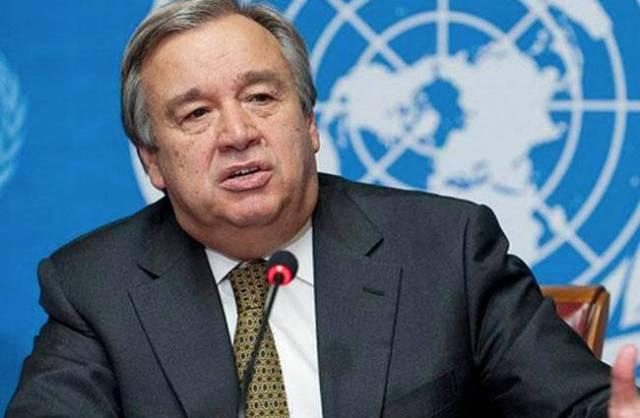KABUL (Pajhwok): The UN secretary-general says journalists and media workers are facing increasing politicisation of their work and growing threats to their freedom.
On World Press Freedom Day on Tuesday, Antonio Guterres called for respecting the journalists’ rights and ensuring their protection.
“The day shines a spotlight on the essential work they do, bringing those in power to account, with transparency, often at great personal risk,” he noted.
The UN chief acknowledged: “Throughout the COVID-19 pandemic, many media workers have been on the frontlines, providing accurate, science-based reporting to inform decision-makers and save lives.”
At the same time, he acknowledged, journalists covering climate, biodiversity and pollution had succeeded in bringing global attention to the triple planetary crisis.
But the threats to their freedom to go about their reporting and story-telling were fairly and accurately multiplying daily.
“From global health to the climate crisis, corruption, and human rights abuses, they face increased politicization of their work and attempts to silence them from many sides,” Guterres said.
“Digital technology has democratised access to information. But it has also created serious challenges,” he continued.
“Media workers in war zones are threatened not only by bombs and bullets, but by the weapons of falsification and disinformation that accompany modern warfare. They may be attacked as the enemy, accused of espionage, detained, or killed, simply for doing their jobs.”
Guterres pointed out that digital technology was also making censorship easier for authoritarian governments and others, seeking to suppress the truth, with many journalists and editors facing the prospect of their work being taken offline on a daily basis.
Digital technology is also creating new “channels for oppression and abuse”, with women journalists “at particular risk” of online harassment and violence.
The UN Educational, Scientific and Cultural Organization, UNESCO, has found that nearly three-quarters of women respondents, had experienced online violence. Hacking and illegal surveillance also prevent journalists from doing their jobs.
“Without freedom of the press, there are no real democratic societies. Without freedom of the press, there is no freedom,” he remarked.
Ten years ago, the UN established a Plan of Action on the Safety of Journalists, to protect media workers and end impunity for crimes committed against them.
“On World Press Freedom Day, we honour the essential work of the media in speaking truth to power, exposing lies, and building strong, resilient institutions and societies, the secretary-general said.
“We call on governments, media organisations and technology companies everywhere to support these crucial efforts.
This year’s World Press Freedom Day Global Conference, began on Monday, and will run until 5 May in Punta Del Este, Uruguay, built around the theme Journalism under Digital Siege.
Also on Tuesday, UN rights chief Michelle Bachelet paid tribute to courageous journalists who continued to risk their lives for their work.
Many reporters had little choice but to work amidst ever-increasing harassment, intimidation, surveillance and risk to their lives and livelihoods, she said at a ceremony in Geneva.
Bachelet warned that journalists continued face grave threats, even in supposedly safe and democratic places. At least 293 media professionals were killed worldwide last year, she recalled.
mud








GET IN TOUCH
NEWSLETTER
SUGGEST A STORY
PAJHWOK MOBILE APP